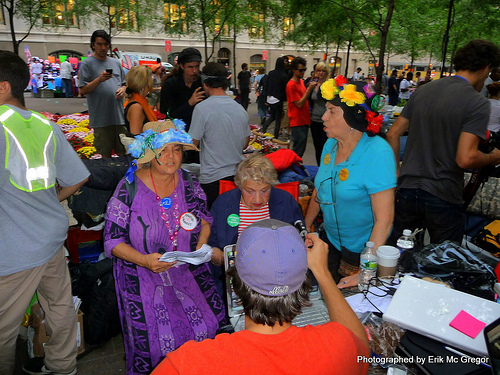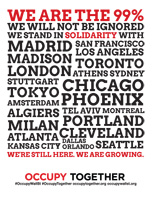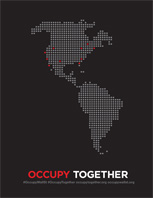.
Posted 26 September 2011, by Akinyi Princess of K’Orinda-Yimbo, Tom Wilt News, tomwilt.com
.
The global food crisis of 2007/2008 that triggered riots from Cape to Cairo and from Senegal to Haiti made governments and their agriculturally-engaged companies to get on the saddle and gallop – with their thinking caps on. Export tariffs were slapped on staple food crops to minimise how much could be sold outside their countries. In my book – Darkest Europe and Africa’s Nightmare: A Critical Observation of Neighbouring Continents, I mentioned, rather apocalyptically, that if we Africans don’t take care then the outside world will turn our continent into “a timber plantation.” This is now happening, but on a worst-case scenario. Africans are being colonised again and this time not with the power of weapons but through Africans themselves selling their continent willingly. The 99- and 999-year lease – a remnant of colonialists – surely cannot fool anybody. This is equivalent to a full century and/or full millennium which translates into three and a half to thirty-four consecutive generations of Africans.
Africans are selling the one natural resource they can’t afford to sell – their land. Especially arable land. In Antananarivo, Madagascar, earlier in 2009, President Ravalomanana’s government was overthrown by angry urban poor who were already spending two thirds of their income to feed themselves ever since the 2008 massive rise in global prices for commodities like rice and wheat. This was not just because of his own private jet bought from a member of the Disney family for his own use with public funds – no. President Ravalomanana was leasing 1.3 hectares (half the size of Belgium and half of Madagascar’s arable land) to South Korea’s Daewoo for 99 years to grow maize and palm oil and send all harvests during this period back home to feed South Koreans. Daewoo paid nothing: they PROMISED to improve the island’s infra structure. And of course they would provide “jobs for the citizens of Madagascar by farming it, which is good for Madagascar” (read cheap slave labour). As usual the public was kept in the dark. Until the news was leaked by London’s Financial Times. This is the first government in the world to be toppled by angry mobs and the military for “land-grabbing”. Kudos to the people.
There are more than 100 similar land-grabs globally, since September 2008, where huge tracts of farmland are bought up by wealthy countries as well international corporations. Mark Weston, Britain’s international development policy consultant does the colourful canvas thus: “Imagine if China, following a brief negotiation with a British government desperate for foreign cash after the collapse of the economy, bought up the whole of Wales, replaced most of its inhabitants with Chinese workers, turned the entire country into an enormous rice field and sent all the rice produced there for the next 99 years back to China… Imagine that neither the evicted Welch nor the rest of the British public knew what they were getting in return for this, having to content themselves with vague promises that the new landlords would upgrade a few ports and create jobs for the local people.
“Then, imagine that, after a few years – and bearing in mind that recession and the plummeting pound have already made it difficult for the UK to buy food from abroad – an oil-price spike or an environmental disaster in one of the world’s big grain-producing nations drives global food prices sharply upwards and beyond the reach of many Britons. While the Chinese next door in Wales continue sending rice back to China, the starving British look helplessly on, ruing the day their government sold off half their arable land. Some of them plot the violent recapture of the Welch valley.”
This – huge tracts of land being “sold” to foreigners for “promises” – is what is happening all over Africa this very minute. Except that in my experience not many Africans are that good at organising themselves as a unified force to recapture their valley. They would either fall upon each other with machetes for a few grains some “kind” soul dropped them from the air, or they’d turn into a trillion factions with double the number of “generals”.
Even the great pope of the free market, Financial Times, has used words like “rapacious” for the likes of Daewoo, warning that it was the most “brazen example of a wider phenomenon” where rich nations are trotting the globe buying up the natural resources of poor countries. The new colonialism is vast in Africa, with the buyers being wealthy countries unable to grow their own food. The Arabs are back fleeing their barren sands to turn Africa into their granary like they did one and a half millennia ago (in Egypt at the time). The Gulf states are in the lead in this new investment. Bahrain, Saudi Arabia, Kuwait, Oman, Qatar, controlling between them 45% of the world’s oil, are snatching AGRICULTURAL LAND in Egypt, Ethiopia, Cameroon, Zambia, Uganda, but also in Cambodia, Brazil, Kazakhstan, Ukraine and Russia. South Korea has grabbed a staggering 960,000 hectares in Sudan, the largest country in Africa, where at least 6 other rich countries are said to have secured large land-holding – and precisely where the local population are among the hungriest and least secure in the world. The Saudis are negotiating 500,000 hectares (not acres) in Tanzania. Companies for the United Arab Emirates have snapped up 324,000 hectares in Pakistan. Highly populated countries like China, South Korea and India have acquired swathes of African farmland to produce food for export. India recently lowered tariffs for Ethiopian commodities that could enter India after the Indian government lent money to 80 Indian companies to buy 350,000 hectares of farmland in Africa, particularly huge tracts in Kenya and Ethiopia. And this is the same Kenya where, in the year 2008, the locals of African descent were chopping each other’s limbs off, being shot by their own police and armed forces and burning innocent men, women and children locked up in churches – because of the land tenure! This is the Kenya where the Gallmanns, Briatores and Bransons and many others own private ranches the size of 3 Cypruses, where Prince William and his girlfriend spend a bit of “Hollywood in the bush” once or so a year – the rest of the time, all the above celebrities have their small states looked after by their private property “my Africans” – while 75% of Afro-Kenyans have no scratch of land to plant a tomato!
Kenya made a deal with Qatar, an Arab land with only 1% arable land, to acquire 40,000 hectares of land to grow food. A third of Kenya’s population was facing food shortages and President Kibaki had no better answer for hungry Kenyans opposing the deal but to impose a state of emergency and then turn around to appeal for international food relief. Where is the logic here, by the bony ancients? If Qatar can grow food on Kenyan soil to feed Qataris, why can’t Kenya grow food in Kenya to feed Kenyans? The land offered to Qatar is in the fertile Tana River delta with an abundance of fresh water. Some 150,000 Kenyan farming and pastoralist families for whom the land is communal graze their 60,000 cattle there. It is no wonder that, supported by opposition activists and environmentalists fearing the destruction of a pristine ecosystem of mangrove swamps, savannah and forests, the people now threaten armed resistance. When that happens, the rest of the world will only report about “warring African tribes”, not a group of people fighting to keep their land and ecosystem instead of allowing it delivered to Qatari farmers to feed their Arabs.
Next door in Uganda, 400 small farmers comprising a total of 2,000 people, were driven out (using violence through the Ugandan army) of their land in 2001 to make room for the German coffee grower Neumann Kaffee Gruppe. This was against the OECD guidelines for multinational concerns. On 24th August 2001, the concern’s boss, Michael R Neumann, together with President Museveni inaugurated the plantation. The people who were driven off their land can since then neither feed themselves adequately nor pay school fees for their children. This is another in a long line of violations of social human rights perpetrated by yet another African so-called leader against his own citizens. Are Africans surprised when the rest of the world view them as some strange pathogens? Who is polishing the patina of Africa’s “bad image”?
Mozambique has signed a $ 2bn deal to give 10,000 Chinese “settlers” land in return for $ 3m in military aid from Beijing. Right. Take the land for 99- or 999-year lease and settle down while you give the starving Mozambicans both reason and means to kill each other off, leaving Mozambique a Chinese province. Food is a weapon is a weapon is a weapon….
But the list is long. The British investor Cru Investment Management has grabbed tracts of the fruitful agricultural land in dirt poor Malawi. US investment banker Philippe Heilberg, assisted by a “warlord”, acquired 4,000 square kilometres of land in southern Sudan. Congo-Brazzaville is allegedly selling 10 million hectares to Euroancestral South Africans to farm. Multinational finance concerns such as Deutsche Bank, Blackstone Group, Goldman & Sachs and Dexion Capital all have invested in African agricultural land. The World Bank and International Finance Corporation are engaged in “the development of agro-business” big time in Africa and other developing countries ever since the food crisis of 2008, pumping billions to agro-concerns to ensure food production in Africa for their own countries. All such investors no longer want to depend on speculators, they want to eliminate middlemen and take control themselves. Cru Investment spokesman, Duncan Parker maintains, “Africa has what it takes to be one of the leading food producers worldwide. Her potential in workers is big, her soil productive and there’s plenty of sun and water.”
Is the man not talking about the same Africa whose people are starving and dying of diseases that could be avoided by mere clean drinking water?
And Philippe Heilberg told the US media that whatever political and legal risks he is taking in Africa at the moment will pay most lucratively because he expects several African states in the coming years to simply fall apart. Can Africans legitimately blame Heilberg for his arrogance and indifference? Besides, when one listens between the words, there is always a plan-in-motion behind such blatant utterances. Africans may well be the next Palestinians – pariahs in their own land.
And now food is not the only thing that African land is needed for. Think of the recent EU Desertec cordoning off the Sahara for solar energy for Europe. In the Desertec Concept are the words:
In the upcoming decades, several global developments will create new challenges for mankind. We will be confronted with problems and obstacles such as climate change, population growth beyond earth’s capacity, and an increase in demand for energy and water caused by a strive for prosperity and expansion.The DESERTEC Concept provides a way to solve these challenges.
The question is, SOLVE THEM FOR WHO? Certainly not for Africans. And how does this concept work?
It works just like a coal steam power plant, with the difference that concentrated solar power is used for steam production, instead of coal. Large mirrors are positioned in such a way that they reflect and concentrate the sunlight onto a certain point much like capturing sunlight through a magnifying lens. A major advantage of this technology is that a part of the sun’s heat can be collected in heat storage tanks during the day and then run through steam circuits at night or specifically during peak hours, depending on the demand. With this technology, renewable and controlled energy can be provided according to the demand of the electricity grid.
Yet Africans, fifty years down independence road and with the technology already existing and sitting their for a price they can more than afford, cannot position large mirrors in such a way that they reflect and concentrate the abundant African sunlight like capturing sunlight through a magnifying lens! Africans have had the Sahara forever – but they just couldn’t come up with the idea of getting some solar energy from this vast desert. No idea from the whole of Sunny Africa? Yes they could, if Africans start thinking of themselves as worthwhile human beings too, and join forces to keep what is theirs theirs. Otherwise Africans might as well follow the butcher meekly to the slaughter house because that’s where they’re going to end up – in “native reserves” dying off as a people until the few Africans left are put in museums like they were once the main attraction in circuses all over the West in the 18th through early 20th centuries.
German, British and American companies have also bought land in Tanzania and Ethiopia to grow biofuels. Ethiopia – the byword for famine – argues that since it imports oil, biofuels will set off price fluctuations and dependency on oil! What about the environmental impact – 75% of the land allocated to the foreign biofuel firms are forested and these forests will have to be chopped off! The Chinese chopstick manufacturers are delighted.
A Norwegian biofuel company will create “the largest jatropha plantation in the world” by deforesting vast tracts of land in northern Ghana. The company was back to darkest Europe when it flagrantly cheated an illiterate chief to sign 38,000 hectares with his thumbprint. Jatropha is a non-too-demanding plant that produces oily seeds from which biodiesel can be made.
This entire new scramble for poor countries’ land is the result of the food crisis of 2007-2008 when the price of wheat, rice and other cereals skyrocketed across the globe. When the food-grower countries applied tariffs to minimize the amount of staple crops that left their countries, the supply was further tightened resulting in prices shooting further up. It was a policy-created scarcity rather than the true-and-tried traditional supply and demand. A situation arose where rich countries reliant on massive food imports put on their thinking caps. They began to put the fundamentals of global trade (that each country should concentrate on its best product and then trade it) under the microscope. The Gulf states, among other rich countries, with their unimaginable amounts of cash from trading oil suddenly realised you can’t eat cash dipped in oil. Nor can you gnaw on a Rolls-Royce. Or feed your children computer chips. The sheikhs & associates saw that the costs of food imports had doubled in five years. The future boded for worse – both regional and global markets were no longer reliable.
The perfect answer was to own agricultural land. “Control of foreign farmland”, writes Paul Vallely, “would not only secure food supplies, it would eliminate the cut taken by middlemen and reduce food-import bills by more than 20 percent. And the benefits could only increase.” Because the fundamental conditions that had ushered in the worldwide food crisis remain unchanged and could easily get worse.
According to the UN the world population will double by 2050. To grow enough food to feed 9bn people choke the planet. So, long term strategies are the right response. When the Prime Minister Taro of Japan (the world’s largest food importer) asked the G8 leaders in Italy: “Is the current food crisis just another market vagary?” he answered his own question: “Evidence suggests not; we are undergoing a transition to a new equilibrium, reflecting a new economic, climatic, demographic and ecological reality.”
Not that the market is asleep either. The cost of land is rising rapidly, making the irresponsible but insatiable African leaders salivate. And we Africans sit with our hands folded on our laps, waiting for some force of nature to come to our rescue. Many are not even aware of the fact that their ancestral land is being offered for re-colonisation, because their governments are big boys who believe informing their citizens of what is going on puts the boys in a subservient position. These are the chaps in this world who are unaware that they are servants of their people.
The food and financial crises combined have made agricultural farmland the new strategic asset. Veteran speculator Jim Rogers, in league with fellow veterans like Lord Jacob Rothschild, said in July 2009: “I’m convinced that farmland is going to be one of the best investments of our time.” This should actually augur well for Africa because there is land in abundance in the continent, and the agricultural sector – Africa’s backbone – is in need of capital and technology. A win-win situation. Except that Africans are auctioning their continent’s most sacred possession for nought and a staggering 99- or 999-year lease (depending on which salivating leader is dealing with whom. There are leaders out there offering the old colonial 999-year lease). That interprets into three and a half to thirty-four generations of Africans – left in limbo. Or as eventual specimens in museums of the wealthy.
Producing enough food to feed 9bn people in 2050 will crush the planet, denuding forests and drainage rivers and ruining arable land. In Copenhagen, capital saw to it that their lackeys, known as governments the world over, treated climate change as Father Christmas – a fairy tale. But, to capital’s delight, oil prices continue to rise in direct relation to fertilizer and tractor fuel – hence biofuels to further cut the land that would be available for food crops. The horrors are ahead because the fat harvest times are over – there won’t be enough food for the table even for the filthy rich – unless they can afford €3m a day residency in outer space. The market economy will this time – as always – not provide for all and sundry as falsely proclaimed. Land prices have jumped from 15% to 30% globally.
After the financial crisis in mortgage-based derivatives, agricultural land is the new strategic asset. An asset that nobody can manufacture or erect, and then sell. Once given away, it is gone and there’s no replica or spare parts, Africans.
Marginally seen, it could be a good thing for African countries. Apart from the staggering and varied natural resources, some of which cannot be found anywhere on the planet, land, as already said, is what Africans have in plenty. All Africa needs is capital to develop her agriculture. A mammoth share of this capital is ferreted out of the continent by the handful few wrongly-wired Africans to develop economies NOT AFRICAN. The Big Curse for which Africans only have themselves to blame. The rest of the world call it capital flight – as if this staggering amount of money simply made up its mind to take to the air and fly to the West – the mad terminologies of our times where human beings call their own dead “collateral damages”.
The financial global players who brought on the crisis are the very same ones now roaming the agricultural landscape and grabbing chunks of it. These land deals should bring investments, technology and know-how to local farmers, reduce dependency on food aid and similar maladies. They should provide infrastructure that goes beyond roads leading from the foreign leaseholder’s farms to the port that transport 100% of their harvests back to their own countries. The deals should enable the building of schools and health centres for the whole community. They should provide enough taxes to the government for more development – assuming African governments would at last invest in their own countries and people instead of castles and numbered accounts overseas. African so-called leaders have some inborn dread of educated and healthy citizens. Instead of recognising the greatest potential to their nations of human resources they see adversaries.
Then there is the problem of monoculture in growing plantation of large-scale food crops dependent of huge amounts of pesticides and fertilisers. This would ruin the long-term sustainability of tropical soils not suited to intensive cultivation, as well as damage the local water table. Soil erosion will occur and ruin long-term land fertility. The diversity of plants, animals and insect life will be drastically threatened while the intensive usage of agrochemicals bring in water-quality maladies. In addition the irrigation of the foreign investors’ plantations would take water away from the indigenous users. So these grabs are in effect water grabs – the most valuable part of these deals – instead of land grabs, since once you own the land you own the water beneath it.
The chief executive of Nestlé, Peter Brabeck-Letmathe puts it this way: “Water withdrawal for agriculture continue to increase rapidly. In some of the most fertile regions of the world (America, southern Europe, northern India, north-eastern China), over-use of water, mainly for agriculture, is leading to sinking water tables. Groundwater is being withdrawn, no longer as a buffer over the year but in a structural way, mainly because water is seen as a free good.”
It is not. The average person in the world uses 3,000-6,000 litres of water daily, less than a tenth of which is used for hygiene or manufacturing. The rest goes to farming. Meat-eating has increased and meat requires ten times more water per calorie than plants. The thirstiest products on earth are biofuels. To grow Soya for one litre of biodiesel takes up to 9,100 litres of water and up to 4,000 litres to transform corn into bioethanol. Brabeck-Letmathe predicts, “Under the present conditions and with the way water is being managed, we will run out of water long before we run out of fuel.” India and the USA combined produce a third of the world’s cereals, but Frank Rijsberman of the International Water Management Institute cautions, “we could be facing annual losses equivalent to the grain crops” of India and the USA.
The land grabs are now a pandemic. As with natural resources in Africa, there is no transparency and foreign governments and multinationals engaged in bribes have no great fear of prosecution in poor countries. In their own wealthy countries, at least somebody may publicly cry foul or demonstrate with huge placards in the streets without fearing being shot down by the police or armed forces.
In Africa land rights are not just written, they also exist through custom and practice. There should indeed be (if nothing else) compulsory sharing of benefits such as construction of schools and health centres. Short leases, or better still contract farming, would leave smallholders in control of their land and contract to investors. On the other hand the investors must never have the right to export entire harvests especially during a food crisis in the host country.
Land-grabs represent a serious violation of the human right to food. Humankind’s most primordial fight was over food. It is food that makes the fittest who then survives. I therefore call to all Africans, Continental and Diaspora, and all friends and fans of Africa, to join me in this fight by going to my web site – www.akinyi-princess.de – and signing in the with both your name, the words and your valid email address. In addition, please spread the word to your friends, families, social network chums and pals, chat room and forum acquaintances around the globe to join us in the fight. I need at least 25,000 authentic email “signatures” to enable me to write a petition to the AU Commissioner in Addis Ababa demanding that African governments may not simply “negotiate” land grab deals with foreign governments and multinationals without prior consultations with their respective citizens in the form of a referendum. The petition is now being professionally drafted and will be posted in my web site ASAP.
.
A graduate journalist – the London Schools of Journalism as well as an economics graduate of the London School of Economics. Been writing as a freelance journalist since 1980, columnist with various dailies and monthly magazines in Africa and Europe. Gives lectures and seminars in various German universities, colleges and high schools on topics ranging from socio-economy in Africa, Business English, African literature and the socio-ethnological conflicts in the traditions of Africans and the West in general. Written and published articles, papers, novels in Engish and German. Her non-fiction book “Darkest Europe and Africa’s Nightmare: A critical Observation of the Neighbour Continents” published in 2008 by a New York publisher. Full CV – www.akinyi-princess.de. More works as yet unpublished and a children’s fantasy/thriller.
Find More Uganda News Articles
Short URL: http://www.tomwilt.com/?p=48161
.
http://www.tomwilt.com/re-colonization-of-africa-through-buying-agricultural-land-wealthy-nations-and-their-multinationals-on-the-rampage/8548161/
































